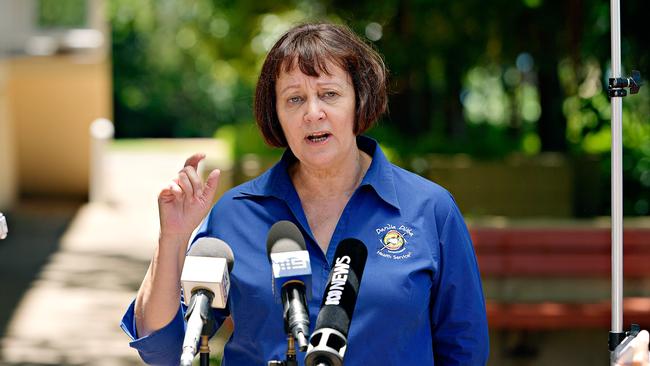PM’s delegation to confront Tennant Creek’s ‘vicious cycle’
Social Services Minister Dan Tehan and Indigenous Affairs Minister Nigel Scullion arrive in Tennant Creek today.

High levels of undiagnosed cognitive disorder in Tennant Creek’s Aboriginal youth population are likely to be contributing to poor education results and an inter-generational abuse epidemic, a Turnbull government delegation to the remote Northern Territory town will be told.
Social Services Minister Dan Tehan and Indigenous Affairs Minister Nigel Scullion have been dispatched by Malcolm Turnbull to the troubled Barkley Region location following revelations in February a two-year-old girl had been sexually assaulted.
Mr Tehan said yesterday the pair would meet “with members of the local community as well as a range of organisations, both indigenous and non-indigenous” after meetings with mayor Steve Edgington and indigenous advocate Jacinta Price to canvass the town’s problems.
Public health expert Olga Havnen told The Weekend Australian the key to the three-day visit, which begins today, would be to “listen to the voices of Aboriginal people, since what seems to be getting a lot of coverage is comments by non-Aboriginal people”.
Ms Havnen, chief executive of the Darwin-based Danila Dilba health service and an Aboriginal woman who grew up in the town, said there was a “vicious cycle” based on a long-standing issue of alcohol and drug abuse in Tennant Creek leading to “behavioural and developmental disorders in children for which there are no services”.
She challenged the two ministers to “take a drive out to the cemetery, where they’ll be horrified to see the number of people who’ve died in the past 12 months, people in their 20s, 30s and 40s who themselves have kids”.
But simply removing children from families, rather than giving those families better support for child-rearing, was a mistake, she said, “because putting kids in out-of-home care means they’re less likely to complete school, (and more likely) to end up in prison and if they’re female, to have their own kids removed from them”.
Chronic health conditions such as hearing deficiency and kidney disease, both related to poor lifestyle opportunities, were also mitigating against successful education and transition to work, she said.
Tim McDonald, chief executive of mining baron Andrew Forrest’s GenerationOne organisation, backed Ms Havnen’s call for the pair to listen to Tennant Creek’s Aboriginal community “because it is the only group that truly understands what it needs”.
Dr McDonald called for better “pre-employment” style programs to help overcome persistent barriers to work such as alcohol, drugs and gambling problems and encourage a strengthened local workforce.


